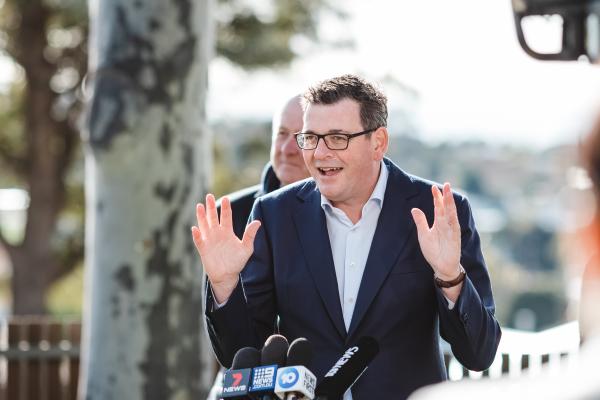A 16-unit complex for people battling mental illness officially opened in Highton with a visit from Victorian Premier Daniel Andrews on Tuesday.
Mr Andrews said the units would help residents to “stay well, stay in their community and out of hospital” with a “safety net” of family and carers.
“Without stability of housing, without accommodation you can be certain about, you simply can’t build a life,” he said.
The units would principally support people with National Disability Insurance Scheme independent living packages, Mr Andrews said.
“We just work through a process to allocate homes to those that have got those packages [who] have got this need.
“Not everybody wants to be in this type of living, but for those who do, this is a big head start.”
The Haven Foundation director Allan Fels approached Mr Andrews with the idea three years ago, he said.
Professor Fels was part of the recent Royal Commission into Victoria’s Mental Health System that recommended “exactly this model” of housing, Mr Andrews said.
Professor Fels said the project represented a “whole of life” approach to mental health.
“It is a model that is very good for families. It brings relief to families who are concerned about the long-term fate of their family members who have mental illness, and we bring them in to [help] run these havens.”
The units are the first of 162 supported independent living homes being built across Victoria following a $49.2 million state government investment.
Haven Foundation is contributing almost $1.2 million towards the homes. The foundation is a subsidiary of Mind Australia, which will provide living services to the residents.
The complex drew controversy in 2019 with some Highton residents opposing the plans.
The lack of need for a council permit for the facility prompted a City Hall review into its community care accommodation clause.
The announcement was Mr Andrews’ first official visit to Geelong since returning to work after suffering a spinal injury in a fall in March.
State government also plans to build another 2000 homes for Victorians living with mental illness as part of its Big Housing Build.














